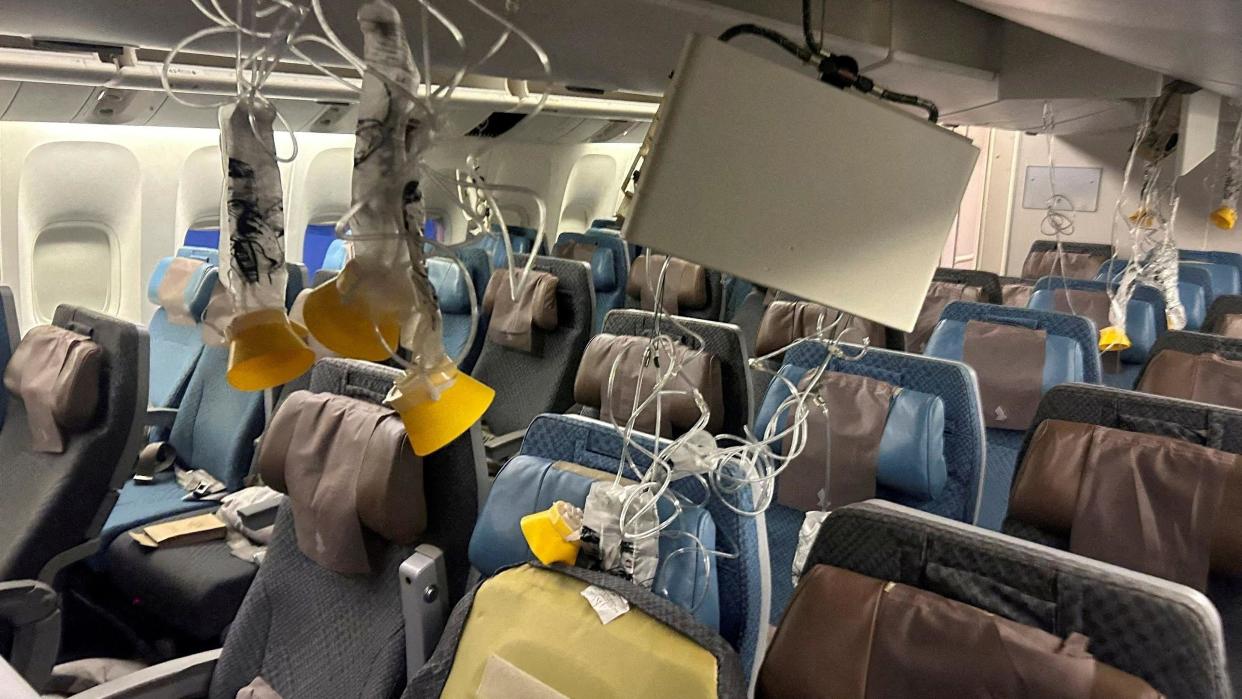Singapore Airlines turbulence victims offered payouts

Singapore Airlines has offered to pay compensation to those who were injured on a London to Singapore flight that encountered severe turbulence.
The airline said it will pay $10,000 (£7,800) to those who sustained minor injuries, in a Facebook post.
For passengers with more serious injuries, the airline is providing "an advance payment of $25,000 to address their immediate needs" and further discussions to meet "their specific circumstances".
A 73-year-old British passenger died and dozens more were injured when flight SQ 321 encountered turbulence over Myanmar and was diverted to Thailand in May.
Singapore Airlines has not yet responded to a BBC News request for further information on how many people will be entitled to the payments.
More than a hundred people who had been on SQ 321 were treated in Bangkok hospital after the incident.
Early investigations showed that the plane accelerated rapidly up and down, and dropped around 178ft (54m) over 4.6 seconds.
Passengers described how crew and those not wearing seatbelts were sent flying and slammed into the cabin ceiling.
A hospital in Bangkok where passengers are being treated said there were spinal cord, head and muscle injuries.
There were 211 passengers - including many Britons, Australians and Singaporeans - and 18 crew on board the Boeing 777-300ER aircraft at the time of the incident.
The company said it would offer a full fare refund to all passengers on the flight, including those who did not suffer any injuries.
On top of this, Singapore Airlines said passengers will received delay compensation in accordance with European Union or United Kingdom regulations.
The airline also offered S$1,000 ($739; £580) to all passengers to cover immediate expenses and it arranged for loved ones to fly to the Thai capital where requested.
Under international regulations, airlines must offer compensation when passengers are injured or die while on a plane.
The incident brought attention to seatbelt practices, as airlines usually allow passengers to undo their belts during normal cruise conditions.
Singapore Airlines: 'Turbulence landed five of my family in ICU'
More than 20 treated for spinal injuries after turbulence flight


